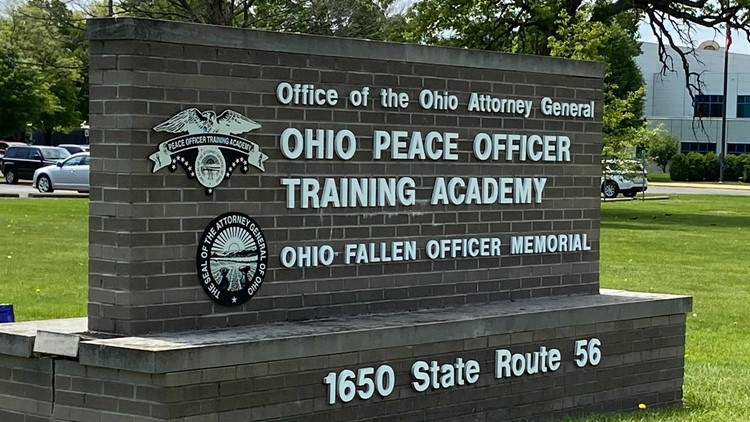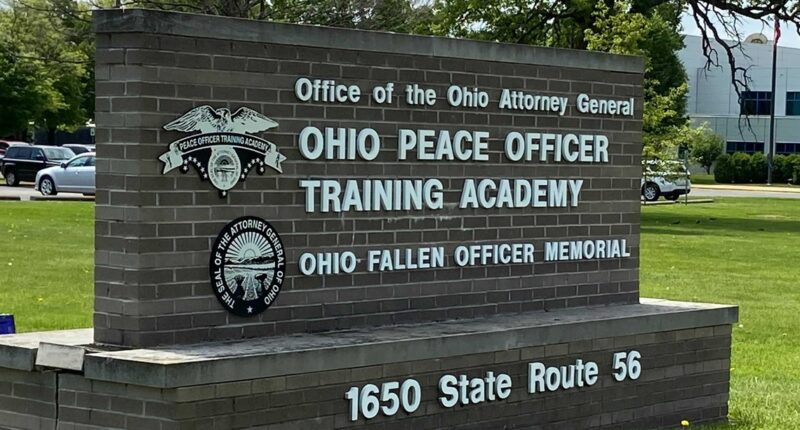
Effective July 1, training academies will introduce the updated curriculum, which is mandatory by Jan. 1, 2026.
COLUMBUS, Ohio — An updated curriculum for Ohio peace officers will take effect this summer, according to the attorney general’s office.
The curriculum looks to prioritize modern-day policing issues and a skills-based officer training program.
Attorney General Dave Yost stated that Ohio’s law enforcement officers are being equipped with the necessary tools and training to effectively handle challenging situations. The Ohio Peace Officer Training Commission (OPOTC), overseen by Yost’s office, focuses on providing practical resources for officers to tackle real-world scenarios. Yost emphasized that the initiative goes beyond mere reform, marking a substantial investment in the advancement of policing in the state.
The changes reflect the recommendations of the Blue Ribbon Task Force on the Future of Police Training, which Yost commissioned in 2023.
Effective July 1, training academies will introduce the updated curriculum, which is mandatory by Jan. 1, 2026.
The OPOTC’s existing curriculum mandates that cadets must undergo a minimum of 740 training hours to receive certification. However, a task force review identified certain courses within the program that offered limited value to new officers’ foundational knowledge.
As part of the reforms, incoming cadets entering Peace Officer Basic Training (POBT) academies will see 72 hours of the previous curriculum replaced with updated training modules. These new courses will cover essential topics such as responding to active shooters and threats, making critical decisions under pressure, managing crises and de-escalating conflicts, effective communication and mediation skills, as well as conducting thorough incident debriefs.
These are the courses being removed or reclassified (72 hours total):
- Blue Courage (16 hours): Post-graduation offering
- First Aid, CPR, AED (8 hours): Online prerequisite
- ICS/NIMS (8 hours): Online prerequisite
- NHTSA Speed Measuring Device (40 hours): Post-graduation elective
These are the new training topics (72 hours total):
- Basic & Interpersonal Communications & Mediation: 44 hours
- Incident Debrief Training: 4 hours
- Active Shooter/Threat Response + Duty to Render Aid: 8 hours
- ICAT (Critical Decision-Making, Tactical Breathing, Crisis Mitigation, De-escalation): 16 hours
The task force introduced a modified graduation fitness standard to support law enforcement recruitment. It was implemented after OPOTC approved it in May 2024.
Although entry-level standards remain unchanged, cadets are eligible to graduate if they pass two of the three fitness test components — sit-ups, push-ups, 1.5-mile run — as long as they meet at least 75% of expected progress in the third component.
Since its implementation, 91 additional cadets, who would have been disqualified under the previous standard, have graduated.

















